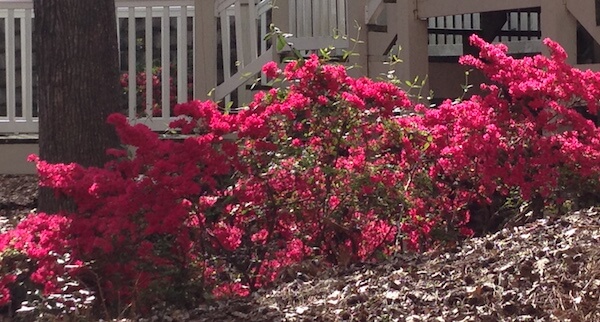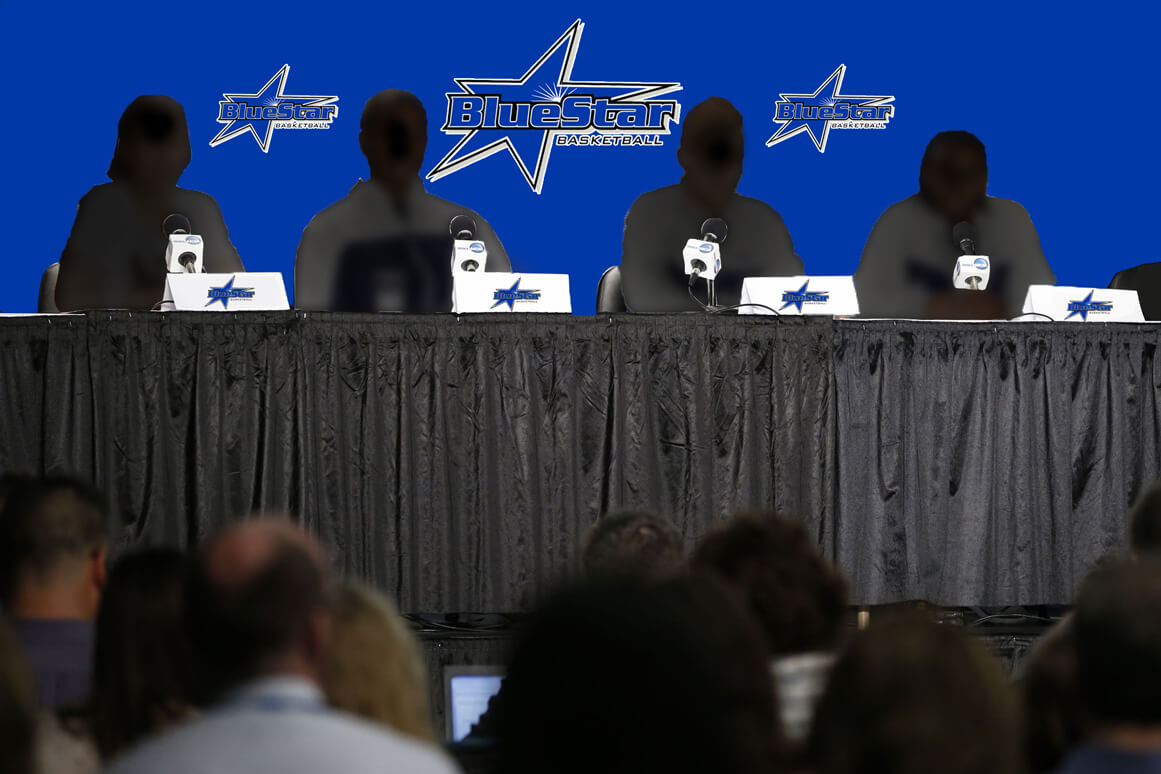
Before Sunday’s national championship game, I stepped out to run a few errands on a beautiful, warm Easter Sunday. An already marvelous Women’s Final Four was coming to a close, and the azaleas are in bloom just outside my front door.
(My condolences to friends on the East Coast, Midwest and anywhere else where snow is falling and winter is still present.)
Spring is in the air where I live, and I was tempted to watch the Notre Dame-Mississippi State game at a place with an outdoor patio. A few watering holes are starting to open theirs in my Sunbelt suburb, and with a 6 p.m. local tip it would remain light throughout.
For the first time in about a decade, I’m not at the Women’s Final Four, burrowed in the bowels of an arena, cranking out predictable game stories and sweeping narrative dramas of resilience and toughness, determination and redemption that have multiplied beyond belief in the age of quick takes and social media frenzy.
And then a most unpredictable, bonkers and incredible Women’s Final Four unfolded.
After Friday night’s dazzling semifinals, part of me wished I was at Nationwide Arena in Columbus. Writing remotely is weird, and while many younger journalists these days have known nothing but blogging off the TeeVee, it boils my ink-infused blood to succumb to this practice. Some newspaper habits die especially hard.
Other work obligations, including starting a local news site in my community, have rendered me a mere spectator in TVLand. As it has turned out, however, and even after Sunday’s even more incredible national championship game, I’m glad I did step away from the women’s media pack.
For the last month, some of those media figures, along with coaches, players and others inside the sport, have been knotting themselves up taking offense over the usual trolls and hot-take knuckleheads who always show up this time of year.
The founder of the tribe, Mel Greenberg, wrote for his old newspaper late Sunday that Notre Dame’s 61-58 win over Mississippi State culminated “easily the greatest women’s Final Four in NCAA history.”
He would know, because he’s seen every one of them in person, and most of those conducted by the AIAW before that. End of discussion.
My point of reference dates back only to 1990. Since then, I’ve missed covering only a few other Women’s Final Fours in person, when I was undergoing some similar career change right at the start of the recession.
When I returned to the fold, in 2009, the media landscape had shifted dramatically. The earthquake of newspaper decline had rapidly eaten up so many of our jobs, and our places on press row. Along with the technological change had come generational change that I hadn’t anticipated, and still grasp to understand.
The “Is UConn good for women’s basketball?” meme consumes some in this sport to the point of being eaten alive by it. While I understand their anger and their frustration, sniping back isn’t a good look.
I can appreciate a player on a national championship team with a clever, if snarky, comeback:
https://twitter.com/mmabrey1/status/980802045195313154
What’s harder to understand is when these sentiments come from some in the mainstream media. I’ll won’t identify these individuals, but one feels the need to defend the sport “from the know-nothings.” Another said, “We go through the same bullshit every year.”
Who’s “we,” exactly? Are these journalists, or self-appointed PR representatives for the sport? I admire their passion for the game, but it’s nothing less than mine.
Others were peeved at references to the “Women’s Final Four,” but there being no gender-specific label for the men’s counterpart, which the NCAA has dubbed only as the “Final Four.”
This is the kind of insufferable bullshit that makes it easy for the “haters” to keep on hating.
Those who don’t like it when they think women’s basketball is being unfairly compared to the men’s game shouldn’t take shots at the supposed lack of quality of men’s Final Four games in San Antonio. Did they see what Villanova did to Kansas? It was UConnesque.
There’s too much media posturing on social media like this, however:
Too bad UConn 'ruined women's basketball' cause otherwise I'd say this has been an entertaining Final Four 😱
— Michael Silver (@MikeSilver) April 2, 2018
Perhaps I’m further removed from the sport these days, but here’s what I do see after taking a few steps back, and not for the first time:
There’s nothing about the sport of women’s college basketball to defend, from the know-nothings or the haters or those who are simply indifferent.
Quit trying to make them, or anyone else, care about the sport. Don’t try to police what they say. Especially if you’re a journalist. As I wrote a few days ago, who cares if they don’t care?
Regard the game as a game, as basketball entertainment, and not as a constant, grim cause that cannot withstand critical comments or any kind of media spectacle.
There are so many more people out there who were watching, if only on a casual basis, on this final weekend of the season. My timelines lit up on Friday, and again last night, from people who normally don’t watch at all.
It’s not likely they’ll ever be more serious fans, but so what? They admired the majesty and splendor of games that are as good of an advertisement of the game as we’ve had in a long, long while. As I also noted the other day, it’s been about 25 years since the Women’s Final Four really came into its own as a major, spectator event. That’s not a very long time.
On Sunday, the event may have taken another very important leap in its evolution:
I'm such a fan of the announcer camera. Adam Amin, Kara Lawson, and Rebecca Lobo are national treasures. pic.twitter.com/9CDini9Qjz
— Justin Russo (@FlyByKnite) April 2, 2018
Memo to the killjoys: It’s supposed to be fun!
Wake up and smell the azaleas, folks. The sport needs no further validation. No trolls need to be answered, nor will any knocks against the men’s game lift up what the women do.
They’ve elevated themselves with compelling, dramatic and entertaining basketball that has more admirers than the game’s “defenders” realize.
Wendy Parker is a sportswriter and web editor who has covered women's basketball since the early 1990s. She is a correspondent for Basketball Times and formerly covered women's and college sports, soccer and the Olympics at The Atlanta Journal-Constitution. She is the author of "Beyond Title IX: The Cultural Laments of Women's Sports," available on Amazon, and the creator of Sports Biblio, a blog about sports books and history.




